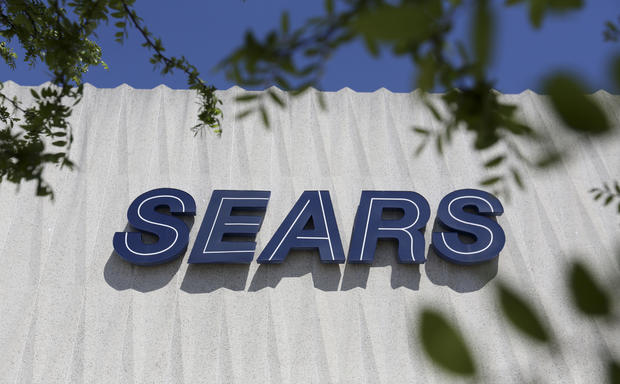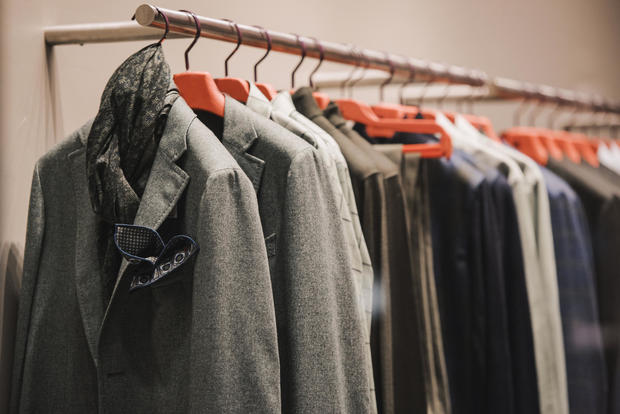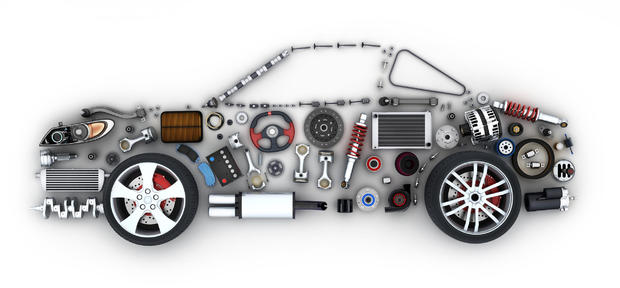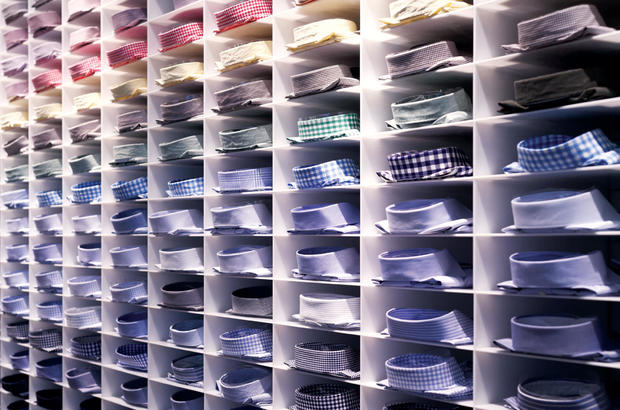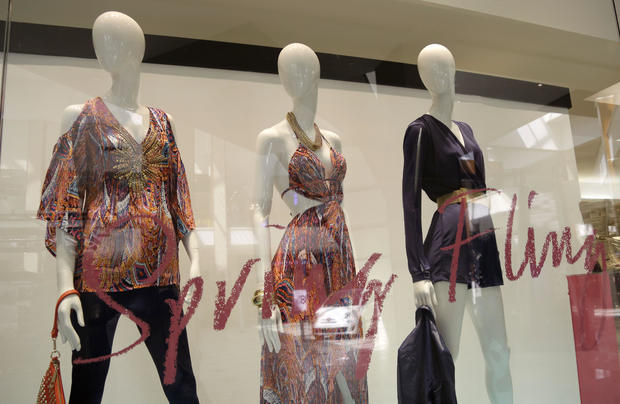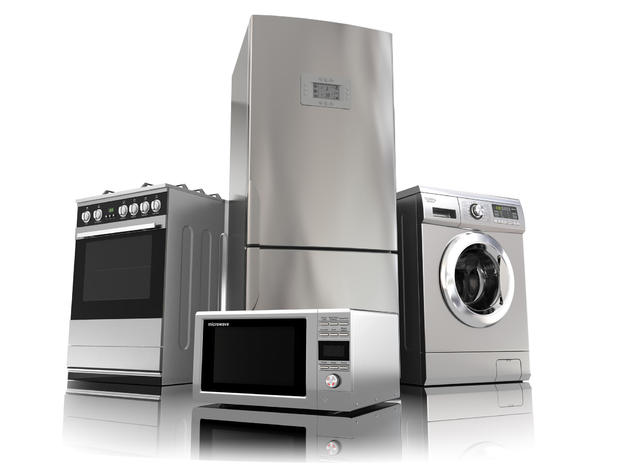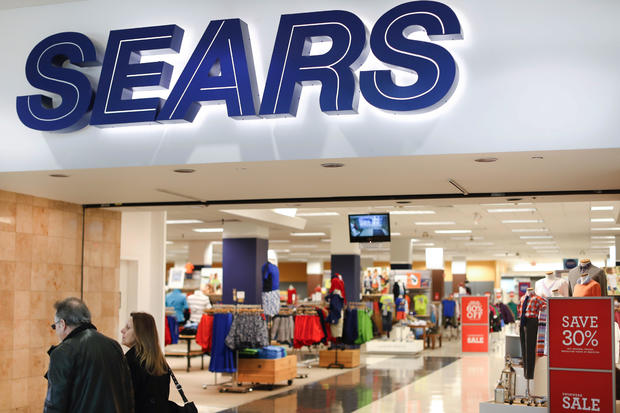The 10 retailers most likely to fail in 2017
If there's one thing bricks-and-mortar retailers might love to see return, it's consumers willing to pay full price. They shouldn't hold their breath.
Americans have become increasingly price-sensitive and unwilling to pay full price in stores, thanks to a combination of stagnant wages and lower prices from online retailers such as Amazon.com (AMZN). That's taking a toll on traditional retailers. So far in 2017, 10 retailers have filed for bankruptcy, including shoe chain Payless and women's apparel vendor Limited Stores -- that's just a few less than went bust in all of 2016.
And they're unlikely to be the last, according to a new analysis from S&P Global Market Intelligence, which ran the numbers and identified another 10 retailers at risk of folding within the next year. One company on their list, Bebe Stores (BEBE), said Friday it would close all of its more than 160 locations.
"General merchandise stores and apparel retail are feeling the threat from convenience provided by online retailers," Camilla Yanushevsky, senior analyst, S&P Global Market Intelligence, wrote in an email. "Bankruptcies will likely continue in 2018 and beyond. Retailers that fail to adjust to changing consumer preferences will be the most at risk."
General merchandise stores and clothing retailers are at most risk as a group. The irony is that bricks-and-mortar retailers are failing at a time when U.S. clothing sales are on the rise. Even though clothing sales rose 3 percent to $218.7 billion last year, department stores and national mall-based chains saw a drop of 4 percent.
By contrast, grocery stores appear to be relatively immune to the threat to online stores, Yanushevsky said. "There exists a human tendency to need to touch and feel food before consumption."
Two other categories that are on "a more positive course" are home improvement and online retail, according to Jim Elder, director of risk services at S&P Global Market Intelligence. He said that's likely due to the shift to online retailing, as well as the strong housing market.
Read on to learn about the 10 companies S&P says are in greatest danger of going bust within the next year.
Sears Hometown and Outlet Stores
Spun off from Sears in 2012, Sears Hometown and Outlet Stores (SHOS) focuses on home and lawn gear, as well as clothing, sporting goods and tools. Like its former parent company, Sears Hometown is suffering from changing tastes, leading to lower same-stores sales.
The company has a 6.1 percent probability of default within the next year, based on S&P's model. Shares of Sears Hometown have declined more than 47 percent in the past 12 months.
Tailored Brands
Tailored Brands (TLRD) may not be known to consumers, but several of its brands are, such as Men's Wearhouse and Jos. A. Bank.
In its most recent earnings release, its CEO said the company is cutting costs and recently closed more than 233 stores. Tailored Brands' shares have declined more than 31 percent in the past year.
The money-losing company has a 6.8 percent probability of default within the next year, S&P estimates.
Fenix Parts
A recycler of automotive parts, Fenix Parts (FENX) recently hired an investment bank to evaluate strategic alternatives after failing to meet quarterly filing dates last year.
Its shares have slumped almost 77 percent in the past year. S&P estimates its likelihood of a default within the next year at 6.98 percent.
Perfumania
Unfortunately, the financial health of Perfumania (PERF) isn't smelling all too sweet.
The perfume retailer said last year it was experiencing lower foot traffic at some malls, while it also being hurt by the stronger U.S. dollar. Shares of Perfumania have declined more than 64 percent in the past year.
Perfumada has a 7.24 percent chance of default within the next year, according to S&P.
Destination XL
Operating more than 200 stores, Destination XL (DXLG) is known for brands such as Casual Male XL and Rochester Clothing. In its most recent earnings release, its CEO called the current retail environment "one of the most challenging in recent history."
Shares have slumped more than 49 percent in the past year. S&P gives the company an 8.1 percent risk of default within the next year.
Bebe Stores
Bebe Stores (BEBE), named after Shakespeare's "to be, or not to be" speech from Hamlet, is suffering the slings and arrows of changing consumer tastes.
The company on Friday settled Hamlet's eternal question on the side of "not to be" for its retail locations, announcing it will shutter more than 160 locations by the end of May.
S&P has pegged Bebe with a 10.1 percent probability of default score in the next year.
The Bon-Ton Stores
Department store Bon Ton (BONT) is struggling along with America's bedraggled malls. The company last year was singled out by S&P Global Ratings as a potential default risk, due to poor operating results and the cancellation of a sale-leaseback deal for three stores.
Shares in Bon Ton have declined 73 percent in the last 12 months. The company has a 10.48 percent probability of default within the next year, S&P said.
Appliance Recycling Centers of America
Appliance Recycling Centers of America (ARCI), founded in the 1970s, recycles old appliances, but it's had some fresh issues of its own. The company recently went through a proxy fight for control of the business, leading to a management shakeup last year.
The company's shares have declined more than 15 percent in the past year. S&P estimates its probability of default within the next year at 11.96 percent.
DGSE Companies
Founded 25 years ago, DGSE Companies (DGSE) deals in jewelry, coins and other valuables, and is best known for brands such as Dallas Gold & Silver and the Charleston Gold & Diamond Exchange.
Shares of DGSE have more than doubled in the past year, making it the only stock among the 10 companies flagged by S&P to see an increase in its shares.
The company has a 14.9 percent probability of default within the next year, according to S&P Global Market Intelligence.
Sears
Once known for its huge catalogs, Sears (SHLD) in more recent years has become a byword for managerial ineptitude. Under the leadership of owner and hedge fund manager Eddie Lampert, shoppers fled Sears, even ranking the department store below Goodwill as a preferred place to shop.
Sears has shed popular brands such as Craftsman tools and Land's End as it tried to right its ship. Yet some experts believe the store is heading for the recycling bin, given its poor performance.
Shares of Sears have declined more than 20 percent in the past year. Its probability of default in the next 12 months is 23.8 percent, according to S&P.
